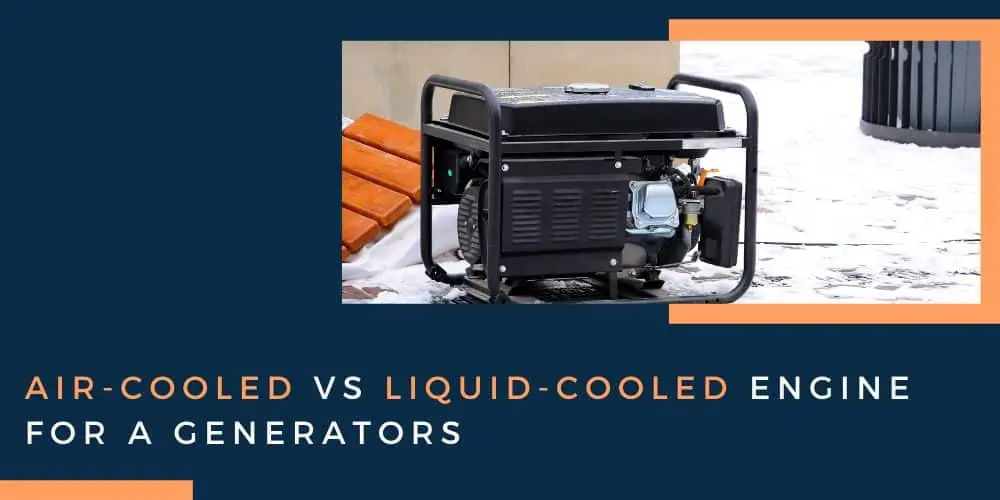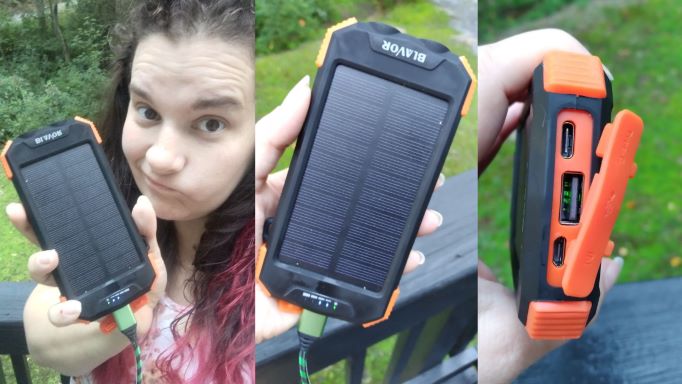A generator, regardless of its size, always generates heat while running. The heat will accumulate and lead to malfunctioning to the whole generator. It entails the need to install a cooling system in the engine to prevent overheating.
A quality generator can’t perform well in power output without an effective cooling system in its engine. It is, therefore, a crucial consideration in generator selection.
So, Let’s take a look at what the differences are between Air-cooled & liquid-cooled engines on portable generators.
Contents
Cooling systems for the engine in generators
There’re two prevalent cooling systems which differ in the coolant employed. The names of both systems imply the coolant they employed. One uses air while another uses liquid. Their features and characteristics enable them to suit different needs and situations.
So, what is the difference between an air-cooled engine and a liquid-cooled engine for a generator? And which one suits us better?
Air-cooled vs liquid-cooled engine for a generators
Let’s look at the Cooling mechanisms, performance, and limitation of both engines.
The air-cooled one built with a ventilation system that keeps bringing fresh air from the environment to the system. The mechanism is simple. Cooling can be done when air pass-through the engine which absorbs and takes the heat away. Since the cooling effect depends on the air, it is limited by the air temperature.
In general, it works effectively in small generators that produce up to 22 kilowatts. However, even used for such generators, if the surroundings have been heated up after a long duration of use, the risk of overheating is increased.
Another option is liquid-cooled that uses splash lubrication systems for cooling the engine. Pumping the liquid coolant to circulate around the engine by a number of hoses, the system facilitates heat absorbance by the coolant, which will then transfer to the radiator where the energy can be released to the surrounding.
It provides a more efficient and effective cooling effect, especially for larger generators that cooling by air is insufficient, if not infeasible. However, all this is done by a larger size of the whole system with heavier components.
Best Solar Phone Chargers here!
Costs
The more complex the system is, the more expensive it will be. Although an air-cooled system is not as simple as installing fans, liquid-cooled one is still much more complex. It requires sophisticated design for the complicated components to perform the duty.
Because of such advanced design, these systems are effective, durable, and robust but more expensive. On the contrary, their air-cooled cousin has a simple system that comes at an affordable price but is less effective.

Apart from their prices, another factor affecting the cost is maintenance. Again, the simple design brings a lower maintenance cost for the air-cooled engine. In contrast, professional knowledge and specialized kits are indispensable for repairing the advanced liquid-cooled one.
Routine checking and frequent maintenance are essential to keep it functioning. All this comes at a higher maintenance cost. Meanwhile, time for maintenance is also much longer for the sophisticated one. The generator has to be shut for longer, which increases the opportunity cost.
Noise levels
We all heard of the annoying noise of an air-cooled system such as the cooling fan of a computer. The same situation applies to air-cooled engines. When blowing air through the engines, noise is an unavoidable by-product that will certainly affect the experience of using the generator, especially if it’s used full time.
It is another story for liquid-cooled engines. Since the coolant is locked in a closed circuit, the by-product can be contained and controlled within the sound attenuated enclosures without affecting the cooling function. Although a minimum level of noise is unavoidable, a significant reduction is certainly an attractive and comfortable feature.
Best Budget Portable Generators here!
Which system suits us better?
Both systems have their own characteristics. Offering powerful cooling function, liquid-cooled engines fit larger and more powerful generators. Meanwhile, equipped with heavy and large components, it requires more space.
It is therefore usually and commonly used in commercial and industrial settings which require a huge but unstopped power supply. In these cases, benefits it can bring will outweigh the higher costs and maintenance efforts.
In general, air-cooled engines suit generators with a lower power level, including small and portable generators that are used in residential settings. It comes at a lower cost.
Although it generates annoying noise, it will be acceptable if it is not always in use. Unless the surrounding environment is very hot, an air-cooled engine is an optimal choice for a portable, residential, and seldomly used generator after balancing cost and benefits.






